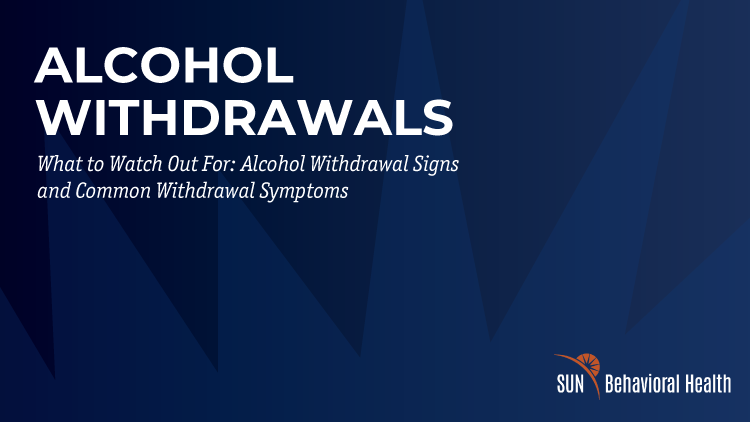Services

Trisha had been drinking a few drinks every night for several years. It helped take the edge off of work stress. But the positive effects never lasted long enough. In the moment, she would feel a sense of euphoria and happiness, especially when she was out drinking with friends. However, drinking also made her feel depressed and anxious. Eventually, she decided enough was enough – she needed a break from alcohol.
That evening, Trisha felt sick with nausea, tremors, and a headache. She wasn’t sure what she was supposed to do. She couldn’t return to alcohol, but the desire and cravings were becoming too much. She needed help now. She was either going to drink to feel better, or she was going to seek treatment. She needed some sort of relief, and she felt like she was in a crisis.
Unfortunately, Trisha’s story is a common one. She wanted to walk away from alcohol, but she wasn’t sure she could because of the withdrawal symptoms. In 2021, 5% of people in Delaware reported that they participated in chronic, heavy drinking. Many of those people find themselves in a crisis when they seek treatment. Crises don’t usually happen at the most convenient time. Like Trisha, they could happen at 11 PM when most facilities are closed. This is why SUN Behavioral Delaware offers 24/7 crisis care. You can start treatment at any time before changing your mind due to the cravings associated with alcohol withdrawal. But how can you know if you are experiencing alcohol withdrawal? What does it look like?
Alcohol withdrawal is the natural process the body goes through when detoxifying itself after consistent and heavy drinking. Withdrawal is typically mild and uncomfortable, but complications can occur that can be life-threatening, which is why it is encouraged for people to stop drinking alcohol under the supervision of a medical professional.
How much you drink to experience withdrawal symptoms depends on your drinking patterns. People who drink heavily will be more likely to experience withdrawal symptoms. For most women, heavy drinking is 8 drinks a week, and for men, it is 15 drinks a week. It is also common for those who participate in binge drinking. This is typically seen as 5 drinks for men or 4 for women on a single occasion.
There are several side effects of alcoholism withdrawal. People might have a headache or insomnia. There might also be tremors or clammy skin. Other people will have a rapid heart rate or agitation. Loss of appetite is also possible for people going through alcohol withdrawal. In severe forms of alcohol withdrawal, delirium can occur. This can be paired with fever, hallucinations, and seizures.
Most people managing withdrawal symptoms will experience severe cravings and might become jumpy or shaky. People might also experience anxiety or depression and mood swings or fatigue. People might become irritable, or they might not think clearly. Nightmares are also common among people who are undergoing alcohol withdrawal.
Most mild symptoms will start within 6-12 hours of the last time someone drank alcohol. The more severe symptoms might appear around 24-28 hours if they don’t start to lessen in intensity before then. Symptoms will peak around 24-72 hours. People will recover with proper treatment, and the symptoms will eventually disappear after several weeks. The timeline depends on factors such as how much alcohol you have drunk or how long you have been drinking.

Alcohol withdrawal occurs when someone suddenly stops drinking alcohol. When someone is regularly flooding their body with alcohol, they’re also flooding their brain with dopamine. Dopamine interacts with the reward center of the brain. As a tolerance is built up, people end up needing more alcohol to have the same effects. So, when someone stops using alcohol, their dopamine levels drop and the brain feels deprived of dopamine. This drop is short-lived and does elevate again after the withdrawal period.
Typically, alcohol withdrawal is diagnosed by a medical provider. They will perform a physical exam and observe several factors. These factors include abnormal heart rhythms, shaky hands, rapid breathing, and dehydration. They might also order blood or urine tests to ensure that other substances are not involved in your symptoms.
Recovery is possible even if, at the moment, it doesn’t feel that way. It will be a challenging experience with several uncomfortable symptoms, but remember that it is part of the recovery process. For some, they might believe that they are experiencing high-functioning alcoholism. They believe that alcohol isn’t impacting their life until the withdrawal symptoms start. While it might be the case, alcohol can still impact your life. It typically starts with an alcohol detox, where medical professionals will monitor your symptoms and help keep you comfortable through the withdrawal period. They can monitor and treat any complications that might arise.
Treatment also might include a mixture of medications to help with symptoms. Therapeutic intervention is beneficial to teach you skills and techniques necessary for helping you cope with urges and cravings after your treatment has been completed. These therapies are typically individual or group and will cover cognitive behavioral therapy (CBT) and dialectical behavior therapy (DBT). DBT will teach you how to identify and manage your emotions and behaviors. CBT helps you identify and manage your thoughts. These skills together can help prevent a return to the use of alcohol, which will prevent withdrawal symptoms from occurring again. Returning to alcohol use can lead to alcohol poisoning, a medical emergency that can be life-threatening. The best way to prevent withdrawal symptoms is to refrain from drinking alcohol.

Getting treatment is the bravest and strongest thing you can do, but we also know it can be full of questions and concerns. This is why SUN Behavioral Delaware offers no-cost care assessments so you can better understand your treatment by talking with an admissions specialist. We solve the unmet needs in Georgetown, DE, including helping our community through the side effects of alcohol withdrawal. For more information about alcohol withdrawal treatment or if you are ready to start your treatment today, call us at 302-604-5600.
If you have been drinking alcohol regularly and stop drinking, you will experience withdrawal symptoms. This is because the body has become used to the alcohol. The body is now doing what it does naturally by removing alcohol from its system, but it also wants more to replace it because it has developed a dependence on it. The symptoms that you feel are the effects of this process. They will eventually go away with time.
Mild alcohol withdrawal symptoms typically start around 6 hours. Most of the time, they will peak in intensity around 24-72 hours after the last time you had a drink. Severe symptoms will start around 24-28 hours. For most people, alcohol withdrawal symptoms will begin to disappear after several weeks. The total time that someone will experience withdrawal symptoms will depend on how long they have drunk alcohol and how much alcohol they have drunk.